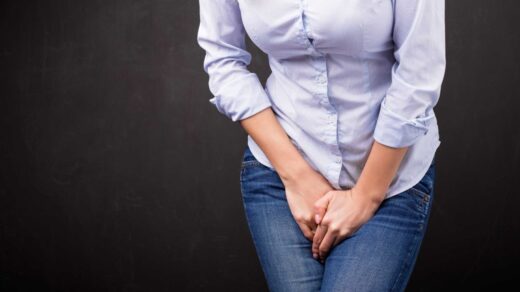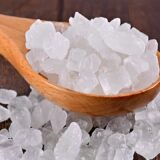Ayurveda for Bald Heads: Natural Hair Regrowth Tips
Ayurveda is a holistic approach that treats the root cause of hair problems by addressing internal imbalances. Unlike conventional methods that focus on topical solutions, Ayurveda uses a combination of natural herbs, oils, and personalized lifestyle practices to promote healthy hair growth.
By nourishing the scalp and supporting overall bodily health, Ayurveda stimulates dormant hair follicles, strengthens hair roots, and helps restore vitality to thinning or damaged hair. This natural approach not only enhances hair growth but also improves overall scalp health and reduces stress, a major factor in hair loss.
Baldness with Ayurvedic Principles
In Ayurvedic medicine, baldness, or “Khalitya,” is often linked to an imbalance of the Pitta Dosha, which governs the body’s heat and metabolism. When this dosha is aggravated, it can lead to excessive hair shedding and thinning.
Ayurveda offers various treatments to balance Pitta, such as herbal formulations like Bhringraj, Amla, and Ashwagandha, which are known for their rejuvenating effects on hair.
Additionally, Ayurveda emphasizes lifestyle changes such as stress management, proper sleep, and a balanced diet to promote hair regrowth. By harmonizing the body’s internal systems, Ayurveda aims to not only prevent hair loss but also promote thick, strong, and healthy hair.
Understanding the Causes of Baldness in Ayurveda
Ayurveda provides a comprehensive understanding of hair loss by examining the balance of the body’s energy systems. Baldness is seen as a reflection of imbalances within the body, particularly in the doshas.
One of the primary causes of hair loss, according to Ayurveda, is the disruption of the Pitta Dosha, which governs heat and metabolism.
When Pitta becomes aggravated, it leads to an excess of heat in the body, which disrupts the hair follicles, leading to thinning and premature hair loss.
Role of Pitta Dosha in Hair Loss
Excess heat, or “Ushna,” generated by an aggravated Pitta Dosha, has a direct impact on the scalp and hair. This internal heat weakens the hair follicles, accelerates hair fall, and can even lead to scalp conditions like dandruff or irritation.
Stress, poor diet, and hormonal fluctuations are all known to increase Pitta levels, making these factors key contributors to hair loss in Ayurveda. Managing Pitta and restoring balance is essential to preventing and reversing hair loss.
Other Factors Contributing to Hair Fall
While Pitta imbalance is a major cause of baldness, Ayurveda also recognizes other factors that contribute to hair fall:
- Accumulation of Toxins (Ama): When the body is unable to properly eliminate waste, toxins accumulate and affect various organs, including the scalp. This can impair hair growth and lead to thinning hair.
- Poor Scalp Health: Lack of proper nourishment, inadequate blood circulation, and improper hygiene can lead to a weak scalp environment, hindering hair regrowth.
- Hereditary Factors and Aging: Genetic predisposition to hair loss, along with the natural aging process, also play a role in thinning hair, but Ayurveda offers remedies to slow down and manage these changes.
Holistic Approach to Hair Regrowth
Ayurveda takes a holistic approach to hair regrowth by addressing internal imbalances and external factors. Ayurvedic treatments involve the use of herbs and oils that nourish the scalp, promote healthy circulation, and strengthen hair follicles.
Internal remedies, such as herbal tonics and teas, are used to detoxify the body, balance the doshas, and restore vitality to the hair.
Additionally, Ayurveda emphasizes lifestyle changes such as stress reduction, proper diet, adequate hydration, and sufficient sleep to maintain overall health and create an optimal environment for hair growth.
By integrating these internal and external therapies, Ayurveda helps not only to regenerate hair but also to improve overall well-being.
Ayurvedic Herbs for Hair Growth
Ayurveda offers a wealth of natural remedies for hair growth, with certain herbs standing out for their potent effects in nourishing the scalp and stimulating hair follicles.
These time-tested herbs not only address the underlying imbalances but also support the hair in growing thicker, healthier, and more vibrant.
1. Bhringraj – The King of Hair Herbs
Bhringraj, often referred to as the “King of Hair Herbs,” is one of the most revered herbs in Ayurvedic medicine for promoting hair health.
It is particularly effective in stimulating hair follicles, encouraging hair regrowth, and reducing bald patches. Its cooling properties help soothe the scalp, reducing inflammation and preventing excessive hair loss caused by heat or stress.
Bhringraj also strengthens hair roots, making it a must-have herb for those struggling with thinning hair and premature baldness.
2. Amla – The Natural Scalp Nourisher
Amla, also known as Indian gooseberry, is a powerhouse when it comes to hair care. Rich in Vitamin C and antioxidants, Amla nourishes the scalp, strengthens the hair roots, and helps prevent premature greying.
The high vitamin C content also stimulates collagen production, which helps in the formation of hair fibers and supports healthy hair growth.
Regular use of Amla, either topically or internally, can result in shinier, thicker hair and can significantly improve the overall health of the scalp.
3. Brahmi – For Strengthening Hair Roots
Brahmi is a potent herb known for its ability to strengthen hair roots and improve scalp health. It nourishes the scalp deeply, balancing moisture levels and reducing dryness, which can lead to brittle and fragile hair.
Brahmi is also known to have calming properties that reduce stress and anxiety—factors that often contribute to hair fall. By promoting the growth of strong, healthy hair, Brahmi is essential for those looking to restore their hair’s vitality and volume.
4. Fenugreek Seeds – A Hidden Gem
Fenugreek seeds are an Ayurvedic secret that provides numerous benefits for hair health. Rich in proteins, iron, and essential fatty acids, fenugreek helps improve blood circulation to the scalp, ensuring that hair follicles receive the nutrients they need for optimal growth.
It is known to strengthen hair and reduce thinning by boosting hair density. Fenugreek also helps treat dandruff and dry scalp conditions, creating the ideal environment for hair growth and reducing the risk of further hair loss.
Ayurvedic Oils and Treatments for Baldness
In addition to internal herbs, Ayurvedic oils play a key role in treating hair loss and promoting healthy regrowth. These oils are infused with powerful herbs known for their rejuvenating properties, nourishing the scalp, and strengthening the hair roots.
Ayurvedic oils not only help restore hair but also soothe the scalp and balance the body’s internal energies, creating an optimal environment for hair growth.
1. Benefits of Bhringraj Oil for Bald Spots
Bhringraj oil is one of the most effective Ayurvedic oils for combating baldness and promoting hair regrowth. This oil is known for its ability to penetrate deeply into the scalp, revitalizing dormant hair follicles and encouraging the growth of new hair.
The cooling and soothing properties of Bhringraj oil help reduce inflammation and improve circulation in the scalp, which in turn promotes healthy hair growth.
Regular application of Bhringraj oil on bald spots can significantly reduce hair fall and stimulate the regrowth of healthy hair in areas where thinning or baldness has occurred.
2. Amla Oil and Its Hair Regeneration Properties
Amla oil, derived from the nutrient-rich Indian gooseberry, is a powerhouse for regenerating hair. Rich in antioxidants and Vitamin C, Amla oil nourishes the scalp and strengthens hair roots.
It helps prevent premature greying, reduces hair fall, and encourages new hair growth on thinning areas. Amla oil is particularly effective for individuals suffering from weak, thinning hair, as it revitalizes the scalp and improves the overall health of the hair.
Consistent use of Amla oil can help restore volume and thickness to hair while enhancing its natural shine.
3. Regular Scalp Massage – Stimulating Hair Follicles
A regular scalp massage using Ayurvedic oils is one of the simplest yet most effective treatments for hair regrowth. Massaging the scalp gently with oils like Bhringraj, Amla, or Brahmi helps improve blood circulation, ensuring that the hair follicles receive the necessary nutrients and oxygen for optimal growth.
The gentle pressure applied during the massage also helps activate dormant hair follicles, encouraging them to produce new hair. Scalp massage also relieves stress, which can be a significant contributor to hair loss.
By improving circulation, reducing stress, and stimulating the hair follicles, regular scalp massage is a holistic approach to achieving fuller, healthier hair.
Dietary Recommendations in Ayurveda for Hair Growth
In Ayurveda, diet plays a crucial role in maintaining overall health and supporting hair growth. By choosing the right foods, you can balance the doshas, nourish your hair, and create the ideal conditions for regrowth.
Ayurvedic dietary recommendations focus on cooling, hydrating, and detoxifying foods that promote a healthy scalp and strong hair.
1. Foods to Balance Pitta Dosha
To combat hair loss caused by an aggravated Pitta Dosha, it’s essential to incorporate cooling foods into your diet. Pitta is associated with heat and inflammation, and when it becomes imbalanced, it can lead to excessive hair shedding.
To pacify Pitta, Ayurvedic practitioners recommend foods that cool the body, such as cucumber, coconut water, and leafy greens.
These foods help reduce internal heat, calm inflammation, and create a soothing effect on the scalp. Other beneficial foods include sweet fruits like melons, pears, and berries, as well as dairy products like milk and ghee, which also have a cooling effect.
2. Hydration and Its Role in Scalp Health
Proper hydration is essential for healthy hair growth. Drinking plenty of water throughout the day helps flush out toxins (Ama) from the body and keeps the scalp hydrated.
A well-hydrated scalp creates a nurturing environment for hair follicles to thrive, preventing dryness, flakiness, and scalp irritation that can impede hair growth.
Staying hydrated also promotes healthy circulation, ensuring that essential nutrients reach the hair follicles to stimulate growth and strength. Adding herbal infusions like coconut water or cucumber water can further enhance hydration and support overall scalp health.
3. Herbal Teas for Internal Detox
In Ayurveda, internal health is closely linked to the condition of your hair. Detoxifying the body helps remove harmful toxins that can contribute to hair thinning and loss.
Herbal teas made from ginger, turmeric, or tulsi (holy basil) are highly recommended for cleansing the body from within. Ginger helps improve digestion and circulation, which can enhance nutrient delivery to the hair follicles.
Turmeric has anti-inflammatory properties that help reduce scalp irritation and promote a healthy scalp environment. Tulsi is known for its detoxifying and stress-relieving effects, which can help reduce the impact of stress on hair health.
Regularly drinking these herbal teas not only aids in detoxification but also strengthens the body and nourishes the hair from the inside out.
Lifestyle Changes for Preventing Baldness
In addition to dietary adjustments and Ayurvedic treatments, lifestyle changes play a significant role in preventing baldness and promoting hair growth.
Incorporating mindful practices, improving sleep habits, and choosing natural products are all essential steps in nurturing your hair’s health and vitality.
1. Reducing Stress Through Yoga and Meditation
Stress is one of the primary contributors to hair loss, particularly in the form of telogen effluvium, where hair prematurely enters the shedding phase. Ayurveda emphasizes the importance of mental and emotional well-being in overall health, including hair growth.
Yoga and meditation are highly effective tools for reducing stress and calming the mind. These practices not only help balance the doshas, particularly Pitta and Vata, but also support circulation and reduce the production of stress hormones like cortisol, which can negatively impact hair health.
Regular yoga and meditation sessions help maintain emotional balance and create an environment that promotes hair regrowth and overall well-being.
2. Sleeping Patterns and Hair Health
Adequate sleep is crucial for the repair and regeneration of the body, including hair follicles. During sleep, the body works to repair and regenerate cells, including those in the scalp, and support healthy hair growth.
Insufficient or poor-quality sleep can disrupt these processes and contribute to hair thinning or hair loss. Ayurveda recommends a consistent sleep schedule, ideally between 10 p.m. and 6 a.m., to align with the body’s natural circadian rhythms.
Prioritizing rest and establishing a relaxing bedtime routine helps optimize the repair processes, encourages follicle regeneration, and supports the growth of strong, healthy hair.
3. Avoiding Harmful Chemical Products
Many commercial hair care products contain harsh chemicals that can strip the scalp of its natural oils, leading to dryness, irritation, and damage to hair follicles.
These chemicals, such as sulfates, parabens, and synthetic fragrances, can weaken hair, making it more prone to breakage and thinning. To protect your scalp and hair, Ayurveda recommends switching to natural shampoos and conditioners that are free from these harmful ingredients.
Instead, look for products made from herbs like Bhringraj, Amla, and Aloe Vera, which nourish the scalp and promote healthy hair growth. Opting for natural products helps maintain the health of your scalp, balance the doshas, and safeguard your hair from long-term damage.
DIY Ayurvedic Hair Packs and Remedies
Ayurveda offers a wealth of natural remedies that can be easily created at home to support hair health. These DIY hair packs and treatments use simple, yet powerful, ingredients that nourish the scalp, promote regrowth, and enhance the overall quality of your hair.
By incorporating these remedies into your routine, you can enjoy stronger, healthier hair without the need for harsh chemicals.
1. Aloe Vera and Neem Pack
Aloe Vera and Neem are a potent combination in Ayurvedic hair care. Aloe Vera is known for its soothing and hydrating properties, making it ideal for moisturizing the scalp and promoting healthy hair growth.
Neem, on the other hand, is a powerful herb with detoxifying, anti-inflammatory, and antifungal properties. This pack helps cleanse the scalp, reduce dandruff, and combat scalp infections, creating a healthier environment for hair growth.
Regular use of this remedy helps balance the scalp’s pH, reduce itching, and stimulate hair follicles for regrowth.
2. Curry Leaves and Coconut Oil Remedy
Curry leaves are a time-tested Ayurvedic remedy for promoting hair growth and improving hair texture. Rich in antioxidants, vitamins, and amino acids, curry leaves help strengthen the hair follicles and prevent premature greying.
When combined with coconut oil, a deeply nourishing and moisturizing ingredient, this remedy works to reduce hair fall, enhance hair texture, and improve overall hair health.
Coconut oil’s deep penetration nourishes the scalp, while curry leaves stimulate blood circulation, revitalizing hair follicles and promoting thicker, fuller hair.
Simply heat a handful of curry leaves in coconut oil, massage into the scalp, and leave it on for an hour before washing for best results.
3. Hibiscus Flower Hair Mask
Hibiscus flowers are packed with essential nutrients that provide a natural solution to hair thinning and dullness. They are rich in Vitamin C, amino acids, and antioxidants that nourish the scalp, strengthen hair follicles, and encourage healthy hair growth. Hibiscus also helps maintain the natural color of your hair and improves shine.
To create a hibiscus hair mask, simply grind fresh hibiscus flowers into a paste and mix with coconut oil or yogurt to form a thick consistency.
Apply this mask to your scalp and hair, leave it on for 30–45 minutes, and rinse thoroughly. This remedy promotes shiny, thick, and luscious hair while reducing hair fall and scalp irritation.
Panchakarma Therapy for Severe Hair Loss
Panchakarma, the Ayurvedic detoxification and rejuvenation therapy, offers powerful treatments for addressing severe hair loss. These therapies not only cleanse the body of toxins but also help restore balance to the doshas, promoting healthy hair growth and overall well-being.
Panchakarma therapies like Shirodhara and Nasya are particularly effective in treating hair loss, as they focus on rejuvenating the head and scalp region, where hair growth originates.
1. Shirodhara – Calming the Mind and Scalp
Shirodhara is a deeply relaxing Ayurvedic treatment where warm herbal oils are gently poured onto the forehead, specifically on the third eye area.
This therapeutic technique is designed to calm the mind, reduce stress, and restore balance to the body’s doshas. By soothing the nervous system, Shirodhara helps reduce the impact of stress—one of the leading causes of hair loss.
Additionally, the herbal oils used in Shirodhara nourish the scalp, promote blood circulation, and stimulate hair follicles. This treatment provides a holistic approach to hair regrowth by harmonizing the body’s energy and supporting overall scalp health.
2. Nasya Therapy for Detoxification
Nasya is a unique Ayurvedic therapy that involves the administration of herbal oils or powders through the nostrils to cleanse and detoxify the head region, including the scalp.
This therapy helps clear accumulated toxins (Ama) and mucus from the sinuses, improving circulation to the scalp and promoting hair follicle rejuvenation. Nasya also supports the nervous system, relieves stress, and enhances mental clarity, all of which contribute to healthier hair growth.
By detoxifying the upper body, particularly the head, Nasya helps encourage hair regrowth, reduce scalp inflammation, and restore balance to the doshas, which is essential for preventing further hair loss.
Benefits of Ayurvedic Medicine for Baldness
Ayurvedic medicine offers a natural, holistic approach to treating baldness, focusing on long-term solutions that promote overall health and well-being.
By addressing the root causes of hair loss and harmonizing the body’s internal systems, Ayurveda provides gentle and sustainable remedies that improve hair health without causing harmful side effects.
1. Long-Term Solutions Without Side Effects
Unlike many chemical treatments that can lead to side effects like scalp irritation or thinning of hair over time, Ayurvedic remedies are designed to be safe and gentle for long-term use.
Ayurveda uses natural herbs, oils, and treatments that nourish the scalp, balance the doshas, and restore vitality to the hair. These remedies work gradually to support hair regrowth, improve hair texture, and prevent future hair loss without the risks associated with synthetic products.
This makes Ayurveda a preferred choice for individuals seeking a sustainable solution to baldness.
2. Personalized Treatments Based on Doshas
One of the most unique aspects of Ayurvedic medicine is its emphasis on individualized treatments. Ayurveda recognizes that each person has a unique constitution (Prakriti) made up of different proportions of the three doshas—Vata, Pitta, and Kapha.
By identifying the specific dosha imbalance causing hair loss, Ayurvedic practitioners can tailor treatments to suit the individual’s needs.
Whether it’s calming an aggravated Pitta dosha or balancing Vata, personalized Ayurvedic treatments address the root causes of baldness and are designed to restore balance, improve hair health, and promote regrowth more effectively.
FAQs
1. What is the best Ayurvedic herb for baldness?
Bhringraj is widely regarded as the best herb for regrowing hair on bald spots.
2. How often should I apply Ayurvedic oils?
Apply Ayurvedic oils at least 2-3 times a week for optimal results.
3. Can diet really improve hair growth?
Yes, a balanced diet that pacifies Pitta Dosha can significantly enhance hair regrowth.
4. Are there any side effects of Ayurvedic treatments?
Ayurvedic treatments are natural and usually free from side effects if used correctly.
5. How long does it take to see results?
Visible results may take 3-6 months of consistent Ayurvedic treatment and care.
Ayurveda targets the root causes of hair loss, such as imbalances in the body, poor scalp health, and stress. Natural remedies like Aloe Vera, Neem, Bhringraj, Amla, and fenugreek, combined with lifestyle practices such as stress management and proper nutrition, can stimulate hair follicles, improve scalp circulation, and nourish hair growth.

























